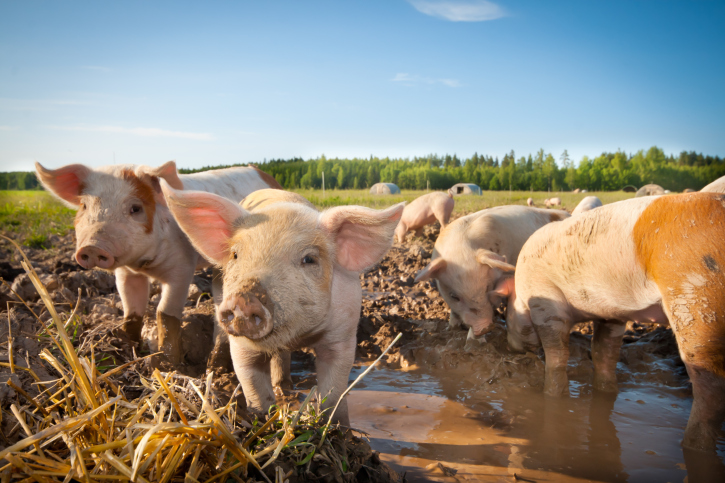Companies and Brands
Smithfield Buyout: Do You Want China Owning Your Meat Supply?
Published:
Smithfield Foods Inc. (NYSE: SFD) is seeing its shares surge this morning on news that it has received a big premium buyout offer. A Chinese firm called Shuanghui International Holdings, which is the is the majority shareholder of China’s largest meat processing enterprise, has signed a definitive merger agreement to acquire Smithfield Foods for approximately $7.1 billion after the assumption of debt.
Outside of this being potentially the largest Chinese acquisition of a U.S. company, we are a bit curious how U.S. customers are going to feel about one of America’s top meat suppliers being owned and controlled by the Chinese. Will consumers buying future Smithfield products think it is odd that they are now eating Chinese food?
Terms call for Smithfield shareholders to receive $34.00 per share in cash, and the boards of directors of both companies have accepted the deal. The announcement this morning calls for the combined companies to have greater access to the large and growing Chinese marketplace, while retaining “world-leading food safety and quality control standards.”
Shuanghui International has said that Larry Pope will continue as president and chief executive officer of Smithfield. The company also said that the existing management teams and workforces of Smithfield’s independent operating companies will continue in place after the transaction.
If you think that having a Chinese owner of a U.S. meat company does not matter to U.S. customers, there are many brands to consider here. Smithfield generates $13 billion in annual sales, and its brands include the following: Smithfield as the primary, followed by Eckrich, Farmland, Armour, Cook’s, Gwaltney, John Morrell, Kretschmar, Curly’s, Carando, Margherita and Healthy Ones. That is a lot of brands that touch millions and millions of Americans each year.
We expect that the Committee on Foreign Investment in the United States (CFIUS) review will be an extra-detailed one. The group gets to oversee foreign mergers and investment regarding national security and safety.
If you want to consider fairness or cross-border treatment in reverse, it is unlikely at all that Smithfield Foods would be permitted by Chinese authorities to do this deal in reverse. China likely would allow a U.S. food giant to make a handy investment or a partnership of sorts, but China likely would not approve a U.S. food giant coming in and buying outright a major meat producer and supplier in China. The companies may have agreed to the deal and shareholders may be getting a big bump here, but under no circumstances would we consider this merger a done deal on the regulatory front.
Smithfield shares are up 25% at $32.60, and that 4.3% arbitrage spread to the $34 buyout price is indicative of a deal that is still likely to close but may take a long time. At least one law firm already has announced an investigation into whether the Smithfield acquisition is fair. It even noted one analyst saying that Smithfield should be worth $48 per share.
If you’re one of the over 4 Million Americans set to retire this year, you may want to pay attention.
Finding a financial advisor who puts your interest first can be the difference between a rich retirement and barely getting by, and today it’s easier than ever. SmartAsset’s free tool matches you with up to three fiduciary financial advisors that serve your area in minutes. Each advisor has been carefully vetted, and must act in your best interests. Start your search now.
Don’t waste another minute; get started right here and help your retirement dreams become a retirement reality.
Thank you for reading! Have some feedback for us?
Contact the 24/7 Wall St. editorial team.